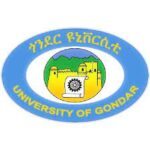Overview
outREACH system for the delivery of personalized upper extremity assessment and rehabilitation management for stroke patients in sub-Saharan Africa. 80 percent of stroke burden occurs in low and middle-income countries. In sub-Saharan Africa, stroke prevalence has doubled in the past four decades causing serious, long-term physical disabilities, and has pervasive negative influences on an individual’s quality of life, participation in society, and independence. Evidence shows that post-stroke rehabilitation facilitates recovery and improves the quality of life and independence. However, in sub-Saharan Africa there is a scarcity of rehabilitation professionals and access to healthcare is limited by geographical distances.
This study
This study will leverage mHealth technologies to develop a community-based stroke management system in order to enhance access to healthcare. Using an iterative user-centered design approach we developed a community-based tool for the personalized delivery of upper extremity stroke assessment and rehabilitation.
- Aim 1: Evaluate the usability and acceptability of the outREACH system in Gondar, Ethiopia
- Aim 2: Establish the extent to which the outREACH system leads to improvements in post-stroke upper limb function
System features
- The creation and modification of tailored rehabilitation programs
- Tracking patient progress based on performance
- Visual feedback about psychological and physiological progress
- Asynchronous patient and clinician communication
Implications
- The outREACH system will provide an innovative and entirely new approach to stroke management. If successful, our community-based mHealth application may lead to a shift in the way that patients with physical disabilities are treated
- Community-based mHealth solutions can serve as a model for rehabilitation during stroke recovery improving access to healthcare across sub-Saharan Africa and in other areas with limited access to quality rehabilitation services

Collaborators

